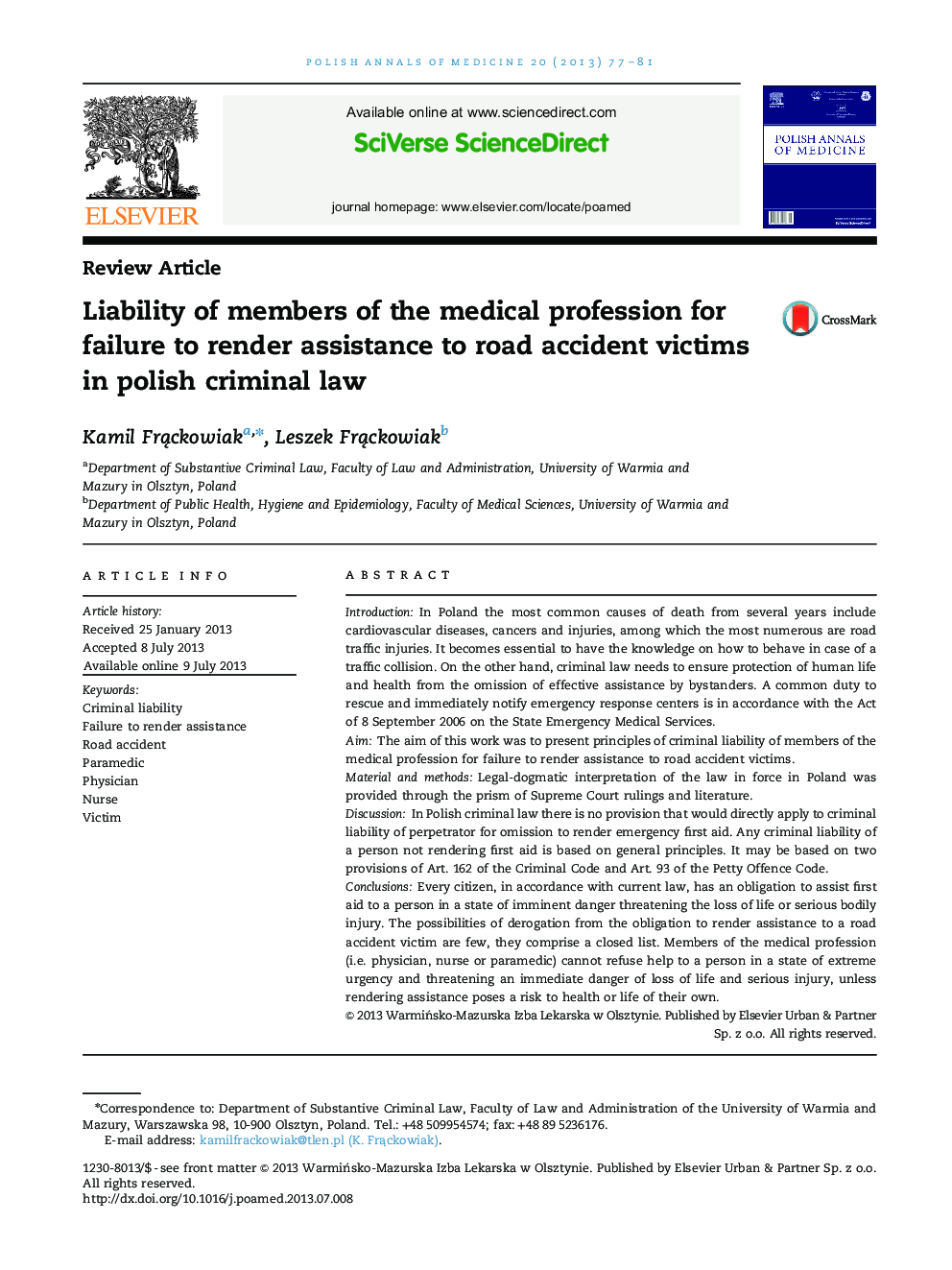| Article ID | Journal | Published Year | Pages | File Type |
|---|---|---|---|---|
| 2678740 | Polish Annals of Medicine | 2013 | 5 Pages |
IntroductionIn Poland the most common causes of death from several years include cardiovascular diseases, cancers and injuries, among which the most numerous are road traffic injuries. It becomes essential to have the knowledge on how to behave in case of a traffic collision. On the other hand, criminal law needs to ensure protection of human life and health from the omission of effective assistance by bystanders. A common duty to rescue and immediately notify emergency response centers is in accordance with the Act of 8 September 2006 on the State Emergency Medical Services.AimThe aim of this work was to present principles of criminal liability of members of the medical profession for failure to render assistance to road accident victims.Material and methodsLegal-dogmatic interpretation of the law in force in Poland was provided through the prism of Supreme Court rulings and literature.DiscussionIn Polish criminal law there is no provision that would directly apply to criminal liability of perpetrator for omission to render emergency first aid. Any criminal liability of a person not rendering first aid is based on general principles. It may be based on two provisions of Art. 162 of the Criminal Code and Art. 93 of the Petty Offence Code.ConclusionsEvery citizen, in accordance with current law, has an obligation to assist first aid to a person in a state of imminent danger threatening the loss of life or serious bodily injury. The possibilities of derogation from the obligation to render assistance to a road accident victim are few, they comprise a closed list. Members of the medical profession (i.e. physician, nurse or paramedic) cannot refuse help to a person in a state of extreme urgency and threatening an immediate danger of loss of life and serious injury, unless rendering assistance poses a risk to health or life of their own.
